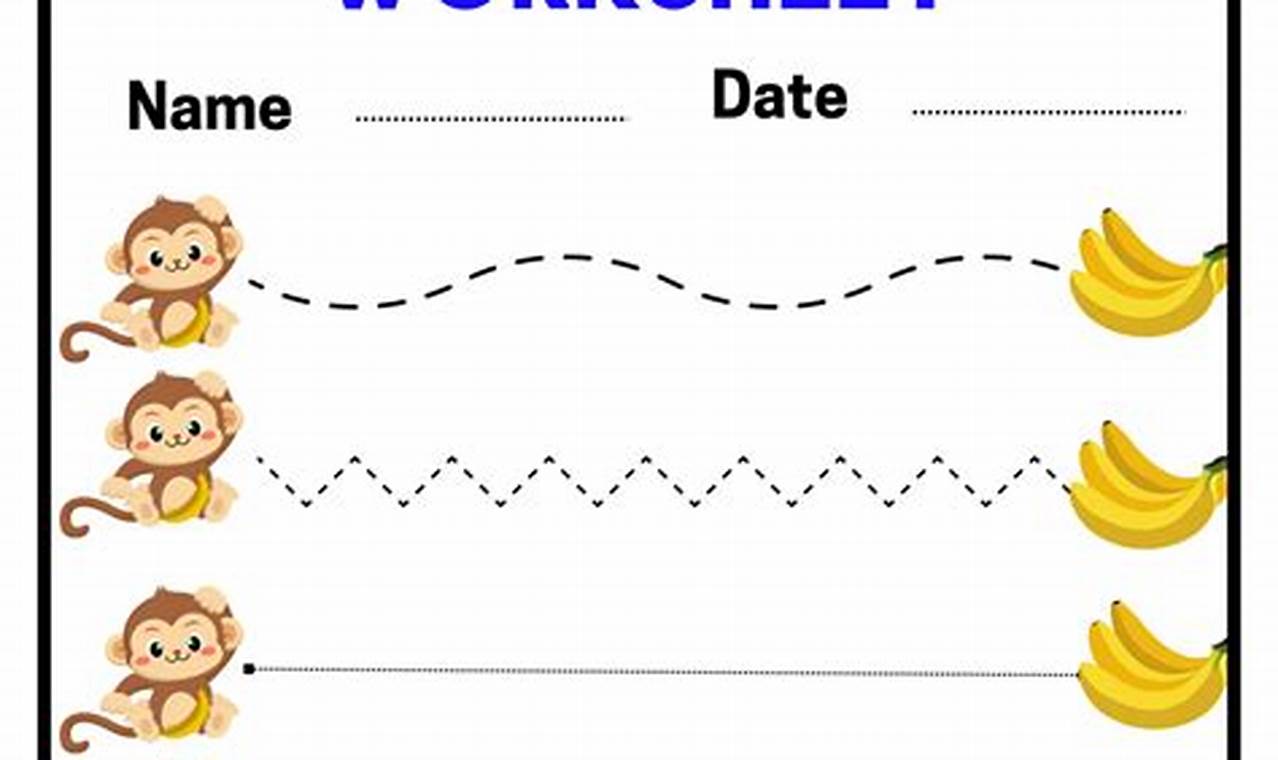The development of fine motor skills is a crucial aspect of early childhood education, laying the groundwork for future academic success. Proficiency in these skills directly influences a child’s ability to perform essential tasks such as writing, drawing, and manipulating objects. Early engagement with structured activities designed to enhance these skills can significantly benefit a child’s overall development and readiness for more complex learning challenges.
Using line tracing exercises offers several key learning benefits. It helps children develop essential pre-writing skills by improving hand-eye coordination and muscle control. These exercises enhance hand strength and dexterity, necessary for forming letters and numbers. Furthermore, line tracing can boost concentration and attention span as children focus on accurately following the lines. This activity fosters a sense of accomplishment and builds confidence in young learners.
The “download free printable line tracing exercises” worksheet typically contains a variety of lines and patterns designed to engage young learners. The worksheet usually features straight, curved, and zigzag lines, as well as shapes and simple figures. Bold, clear lines are used to guide children’s pencils, making it easier for them to follow along. Many worksheets also include fun illustrations to maintain children’s interest and make the activity more enjoyable. Ample space is provided for repeated practice, allowing children to refine their skills over time.
To effectively use the line tracing worksheet, begin by providing a comfortable and distraction-free environment. Offer a thick pencil or crayon, which is easier for small hands to grip. Start with the simplest patterns, gradually progressing to more complex designs. Encourage children to trace each line slowly and carefully, focusing on accuracy rather than speed. Offer positive reinforcement and celebrate their efforts, regardless of perfection. Break the activity into short sessions to prevent fatigue and maintain engagement.
For additional practice and skill reinforcement, several complementary resources are available. Kidtraces.com offers a wide range of related worksheets focusing on letter tracing, number tracing, and shape recognition. Educational games and apps that promote fine motor skills can also be beneficial. Incorporating daily activities, such as playing with building blocks, using playdough, or practicing cutting with scissors, can further enhance these skills. Encouraging children to draw and color regularly also supports their development.
The “download free printable line tracing exercises” worksheet provides a valuable tool for developing essential fine motor skills in young children. Its structured approach and engaging design make it an effective resource for parents and educators alike. By incorporating this worksheet into a child’s learning routine and supplementing it with related activities, significant improvements in handwriting readiness and overall skill development can be achieved. Explore more free worksheets on Kidtraces.com to support continuous learning and skill development.
